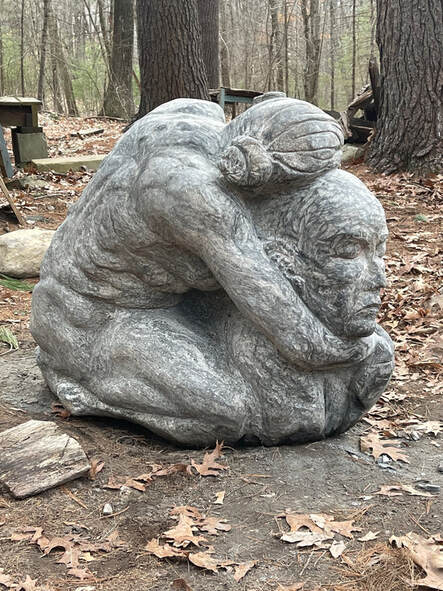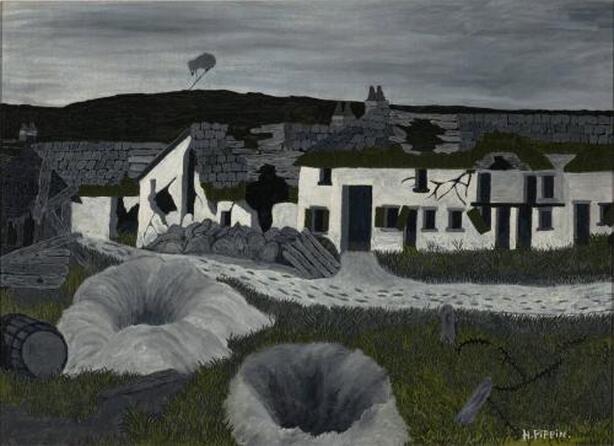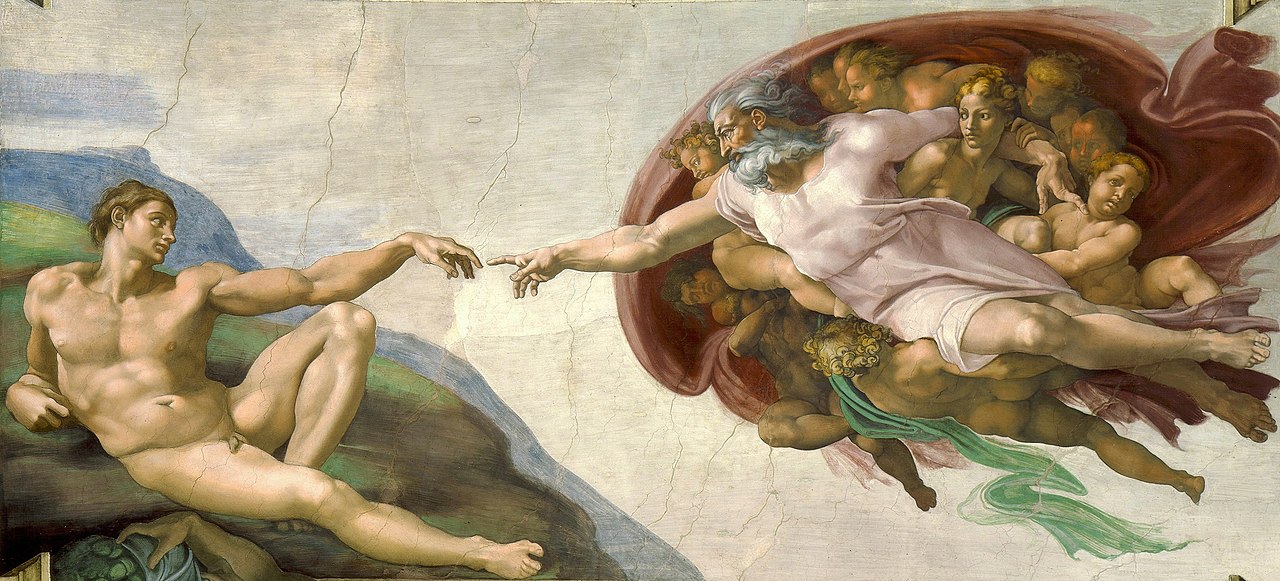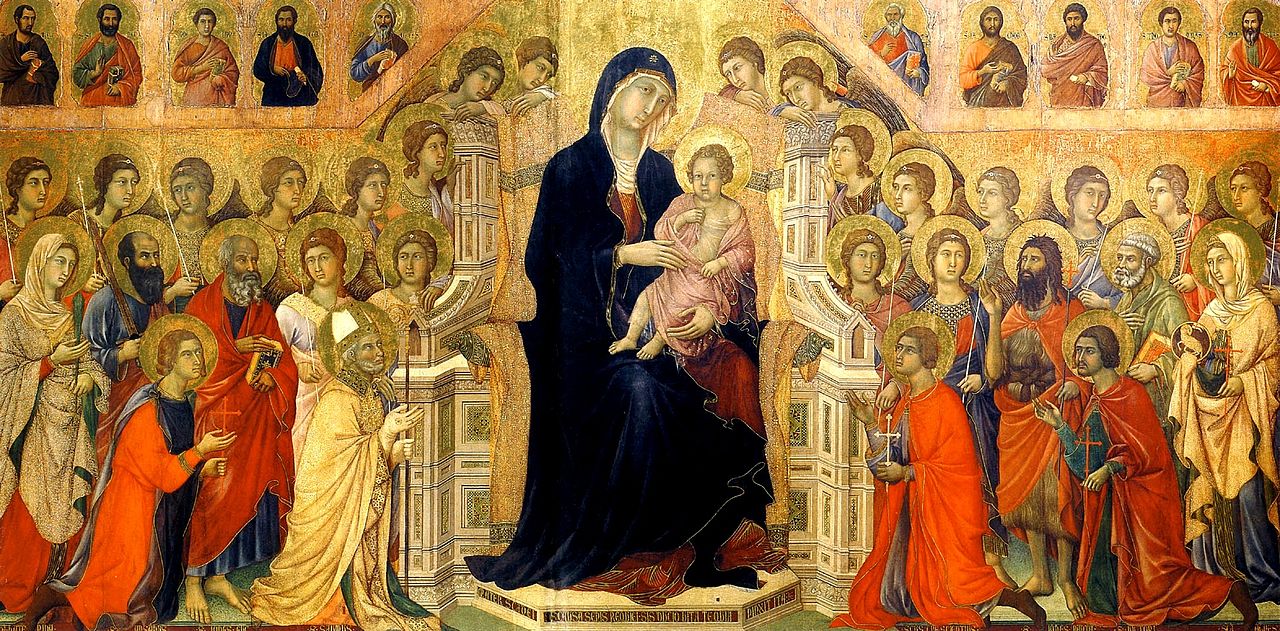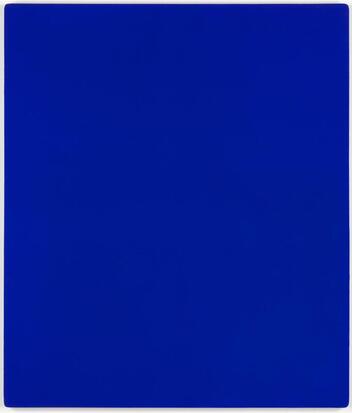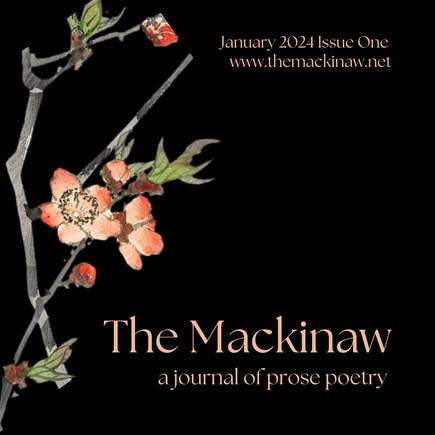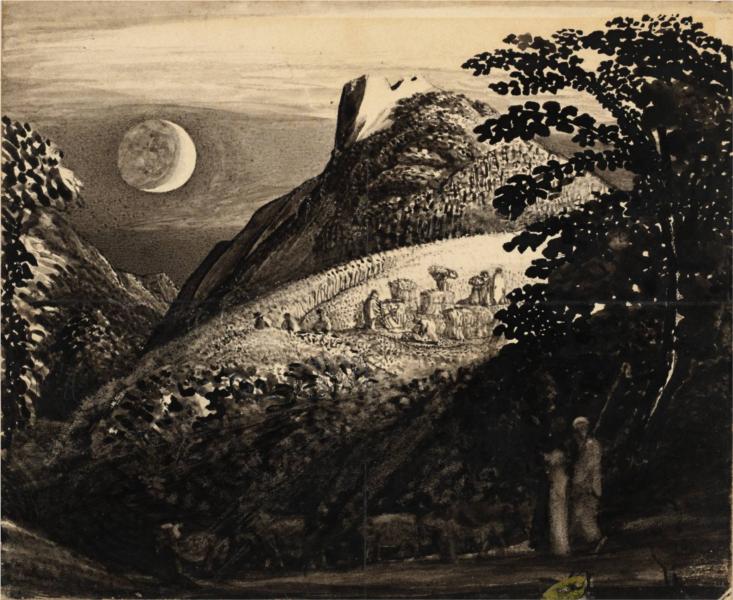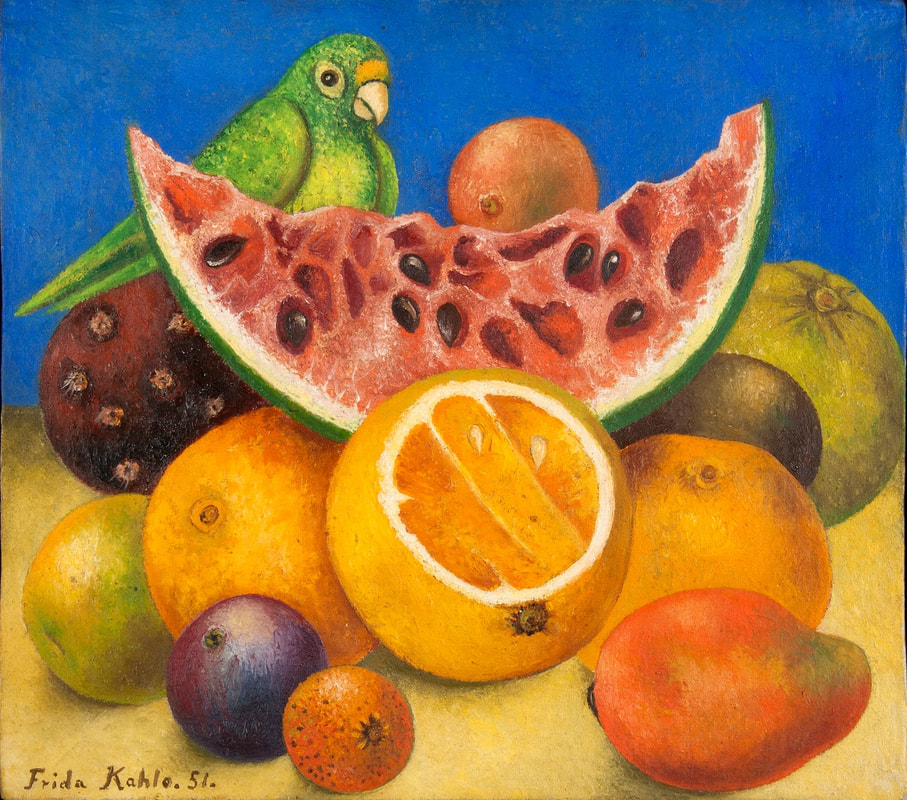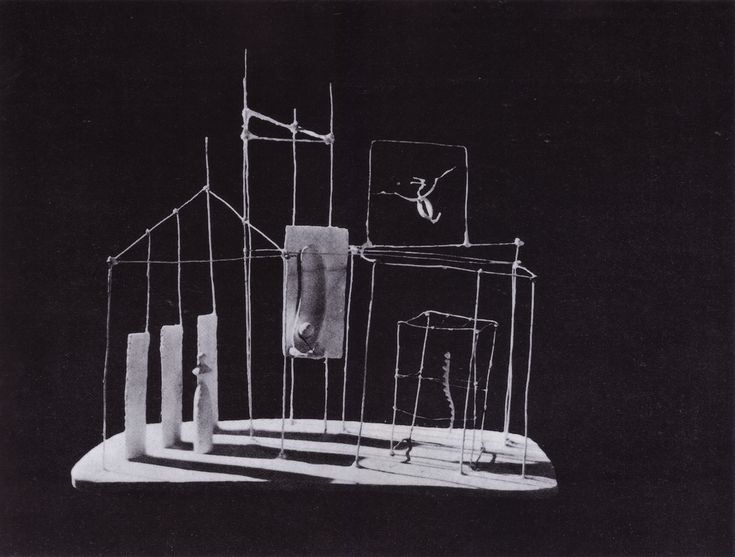|
Until The air’s cool and still. Two in flannel smoke cigarettes and brush past, brindle mutt sniffing, nose over a row of ants close to the rock. I study the deepest cut-- back of the woman’s head (supposition, no doubt). The chickadees flit elm to elm, limbs dripping. On one matter I’m certain: accidental beetles are killing them back home—another disease we carried onto this continent. Knowledge is not a solution. This place is flooded. Nobody asks why. Real art is scarce. I hear the ring of a hammer & chisel, people on the trail; they don’t stop until… Unfettered, chickadees flit tree to tree, black & white, comfortable in their two colors. One common bird. One song. Debris: elm sprigs, a twig bent like a knee, one shoe-- a lavender suede mule, on the narrow trail. No footprints go to or from the rock. I recall Pieta, Michelangelo freeing a woman and her son, a tick- tock, irregular, unrhythmic; no time to waste on the past’s dead hands. Transition takes guts. On their knees, they wait for divine intervention. No god’s coming. One man chisels superfluous material. In each whack, crack and cut, we are revealed. Robert E. Ray Robert E. Ray is a retired public servant. His poetry has been published by Rattle, Wild Roof Journal, Beyond Words Literary Magazine, The Ekphrastic Review, and in six poetry anthologies. Robert is a graduate of Eastern Kentucky University. He is a native of Indiana and now lives in rural south Georgia.
0 Comments
From the Heart of a Harlem Hellfighter “For the whole entire battlefield was hell, so it was no place for any human being to be.” Horace Pippin With one arm supported by another I paint a picture, a memory of bomb holes and burned-out buildings in France. Black and gray oil on white muslin create a path of marching footsteps, broken marks on land left hollow. A scorched log points upward. A shattered roof, cracked walls, and bent barbed wire. A farm and field laid bare. No man or beast remains. God help those who cannot see this stormbound past, our soldiers’ black embedded footprints, repeated footprints, footsteps in soft clay. Judy Harding After working as a Wildlife Biologist in Boston, San Francisco, and Annapolis, Judy Harding settled in Baltimore, where she began writing poetry. She is a graduate of the Johns Hopkins MA in Writing Program. An emerging writer, her work has appeared in: Close Up: Poems on Cancer, Grief, Hope and Healing; Persimmon Tree; Plants and Poetry Journal; The Winnow Magazine. Dakota Medicine Man Set on his table-lap the turtle accepts the gaze of the Shaman, 200 million years of life wisdom radiates up and outward, Spiral vortex of confused coherence generates whirling genius, Dissolves Shaman’s arms and legs, melds them into the earth, Informs the healing way on whose back we all travel. Earth begins and ends in dirt, the soil of our souls, Carries our simple relatives we name algae, fungi, nematodes, Grows the healing plants, animals and incantations Shaman knows from his insides out, beyond the edges, Recollects himself from the dissolution the turtle demands, Buffalo horn headdress, chants, prayers create connection, Plants becomes herbs for healing and soothing, Intuition born of mingling into earth begins a trial and error of thirty thousand human generations. We blood and bone children of the mystery that moves through timeless space and endless time, Extrusions of mother earth, too complex to imagine, Our core shared with every living expression, Built of her atom and essence, molecule and dipole, Almost chimp, not quite dolphin, less so cat, Even less strawberry, 60% banana, 90% turtle. Hard shelled symbol and bearer of longevity and health, Mythic foundation of life’s beginnings on this planet, Our lunar cycle real-time hard copy magic of meaning, Every shell with thirteen plates encircled by twenty eight more, One for each lunar month and one for each day of each month, Universal cosmic energy and order etched in keratin shells, Vibrating toward our own keratin hair and nails and minds, Shaman’s energetic vortex creates meaning for healing, Translates nature into nurture, our gift from the great mother. Corey Weinstein This poem was written after the artwork Dakota Medicine Man, by Oscar Howe (USA) 1968. View it at 11:41 in the video above. Corey Weinstein’s poetry has been published in Vistas and Byways, The New Verse News, Forum (City College of San Francisco), California State Poetry Society, Abandoned Mine and Jewish Currents, and he wrote and performed a singspiel called Erased: Babi Yar, the SS and Me. He is an advocate for prisoner rights and founded California Prison Focus, and he led the American Public Health Association’s Prison Committee for many years. In his free time, he plays the clarinet in a local jazz band, his synagogue choir and woodwind ensembles. Hands in the Sistine Chapel Fingertips tentative early that morning you tested the fresh plaster to know if your painting could begin. Too soon: it yielded to your touch and for a moment, to seek support perhaps or simply to pause for thought, you rested your whole hand there, and in that moment of repose you knew the skewed perspective you would use to feign volume for the viewer far below who’d see two hands outstretched to strike the arc-light of creation. I stood there once, high up on the restorers’ scaffold. I saw the handprint that you left that day and at arm’s length I felt your touch. Now, as I gaze upwards from the marble floor, all I can see is the hand of the master in his image of the finger of God. Nico Mann Nico (Nicholas) Mann. Long since retired academic (Cambridge, Warwick, Oxford, London), who has not quite been able to let go of his attachment to Petrarch - less as a poet however than as a scholar and self-fashioner. Other intellectual passions: myth, the Middle Ages and Mnemosyne, which can all be encompassed in the study of the Classical Tradition as a key element in European civilisation. Has been writing and translating poetry for over 60 years and hasn't finished yet, but also teaches yoga, which he has practised for as long as poetry, and is passionate about carving stone. Trecento The sky of Duccio is of solid gold: Virgin and Child look out upon the world. A crowd prays all day to it in Siena, attesting what the human hand can do. Meanwhile, republics war and plot and exile. Up from the mire arises timeless art to break us out of circumstance, the way a fish lifts from the water when a hawk releases it to daylight. Blood and bone do not define us, for there is a spark trapped in the meanest envelope, a fire that yearns to climb the heavens. Every face is worthy of transcendence. As we gaze at Duccio in Siena, as we learn of love that moves the sun and other stars, we break our shackles and step out upon what passes for the absolute. Begin to read the alphabet; the words will come. John Claiborne Isbell John Claiborne Isbell was born in Seattle, USA and later lived in Europe and the United Kingdom, where he went to school. He has been teaching languages for some time, teaching French and German at universities in the United Kingdom and the United States. He has published various books, including a volume of poetry, Allegro, with a picture of a cello on the cover. His wife is Margarita and their son Aibek is 31. Out of the Blue I’m sinking into the deep blue sea, singing blue dreams, swimming in the blues, Blue Velvet and Don’t You Make My Brown Eyes Blue, descending into a French blue hour at twilight, thinking of my dad’s favorite colour—sky blue pink—and the blue moon this August when it was as hot as blue blazes, hearing echoes of Willie Nelson’s Blue Eyes Crying in the Rain, climbing Fats Domino’s Blueberry Hill, running into old ladies who aren’t blue stockinged, always bluing their hair and sharing a blue-plate special at the Hungry Ghost Diner without a Manhattan due to Blue Laws, and throwing “screwed, blued & tattooed” like a bolt from the blue, and, oh, those blue feelings—royal, indigo, cyan, Chartres, light, dark, midnight, navy, peacock, baby—as I shuffle through blue days in Blue Suede Shoes with Elvis Presley, who never escaped the blues. Sandi Stromberg Sandi Stromberg’s inaugural full-length collection Frogs Don't Sing Red (Kelsay Books, April 2023) includes several works nominated for the Pushcart Prize and Best of the Net. She is an editor at The Ekphrastic Review and a long-time board member for Mutabilis Press, where she edited Untameable City: Poems on the Nature of Houston; she also co-edited Echoes of the Cordillera(Museum of the Big Bend, Sul Ross State University, 2018), an anthology of ekphrastic poems in conversation with the photography of Jim Bones. Her poems have appeared recently in Panoply: The Literary Zine, San Pedro River Review, and MockingHeart Review, and translations of her poetry into Dutch can be found at Brabant Cultureel and on the website of Dutch poet, Albert Hagenaars. Very good news for 2024- the birth of The Mackinaw: a journal of prose poetry is scheduled for January 15!
As many of you know, one of my passions is prose poetry. There are only a few journals dedicated to this wonderful form and I have wanted to launch a new one for years. I was afraid to undertake such a large project when I already have my hands full of this amazing Ekphrastic journal and community, along with my own writing, my other work, and a long list of projects and dreams. But it kept coming up inside my mind and heart. The Mackinaw will not replace or take away from The Ekphrastic Review. Ekphrasis, art history, and this family remain absolutely essential. The new journal will publish every other month and it will only publish prose poetry. It is not an ekphrastic journal, although of course we welcome ekphrastic prose poetry. The first issue launches on January 15. We have a tremendous lineup of luminaries in prose poetry for our debut edition. Visit www.themackinaw.net for more information about this wonderful new project! Lorette Haibun- Last Field As we took the animals meandering slowly home, he was teaching me how to tell if moon is waxing or waning: Look for where the horns are pointing; left for wax, right for wane. Or, put another way; pre moon or down moon [with small letters, p or d]. But I was getting confused with all this, mesmerized to stillness by the labourers in the field, who were bathed with radiant illumination by light of the harvest moon. in silver moonshine familiar yellow flees corn turns pale grey This last field is always a difficult one to manage, squeezed as it is on a just about workable sloping patch of an otherwise steep hill where the wind runs free. But it is fertile and lush and worth the effort. still much to gather and the bales are weighty sweating in moonlight As we enter deep evening, tired muscles and bones still toil, for we all, even the sheep, sense the coming of the rain. from shadows we watch harvesters cut swollen grain bread for the dark days Clive Donovan This poem was first published in Time Haiku. Clive Donovan is the author of two poetry collections, The Taste of Glass (Cinnamon Press) and Wound Up With Love (Lapwing) and is published in a wide variety of magazines including Acumen, Agenda, Crannog, Ekphrastic Review and Popshot. He lives in Totnes, Devon, UK. He is a Pushcart and Forward Prize nominee for 2022’s best individual poems. To the Parrot Whose Eyes Follow Me Darling, why do you look at me so? Is the orange sliced just wrong, angular and harsh like the knuckles of my aged hands? Is the scenery I’ve constructed here too bright for you-- is it the sky-blue backdrop, the kiwi, perhaps the grapefruit? Does the plum’s purple triumph dazzle you, stun you almost? Do you yearn to be the most vibrant subject in the room, always? Have you learned too much from me, and that’s why you’re never satisfied? Because the melon reminds me of my grandmother, seven thousand miles and eight years tucked away. I never eat the melon, simply pick at the seeds until only craters are left behind. You help me with this endeavor, despite not knowing anything I’m saying as I whisper to you my thank you’s. Like a weary friend, you perch there and listen, staring with eyes as beaded and dark as the melon’s seeds. My dearest parrot, tell me: have I not listened to you enough? Have I let our relationship rot, caged your joy, let your love slip, kept you away from your family? Remember, if I cut you fruit, you are my family—like it or not. Ashley Wang Ashley Wang (she/her) is a Chinese American writer currently living in Houston, TX and studying creative writing at Rice University. She is a poetry section editor for R2: The Rice Review. She participates in National Poetry Writing Month each year and likes to use it as a disjointed journal of sorts. Her work is forthcoming in Stone of Madness Press and Eunoia Review." 4:00 a.m. As the hour swallows itself, walls dissolve and spirits cross the threshold, blind bones quicken and fly, the Queen accompanied by her retinue of doors sings to the spirits, the spell cast with string, wire and matchsticks is broken with the slightest of missteps, the conjuror lies awake awaiting first light. Mark Starling Mark Starling lives in Louisiana. His work has appeared in Eucalypt, Ribbons, The Rumpus, Dirigible Balloon, Eunoia Review and elsewhere. |
The Ekphrastic Review
COOKIES/PRIVACY
This site uses cookies to deliver your best navigation experience this time and next. Continuing here means you consent to cookies. Thank you. Join us on Facebook:
Tickled Pink Contest
April 2024
|
